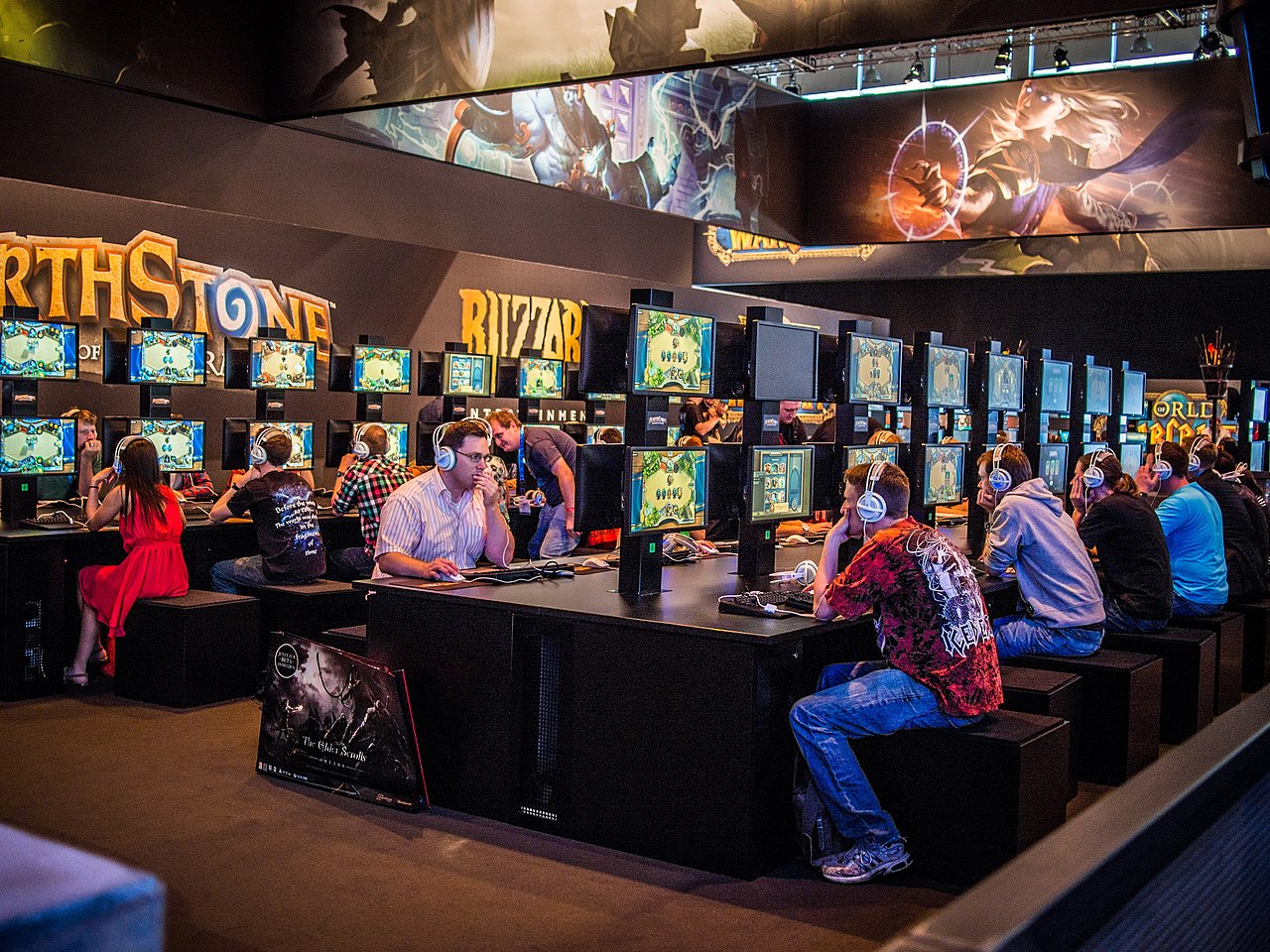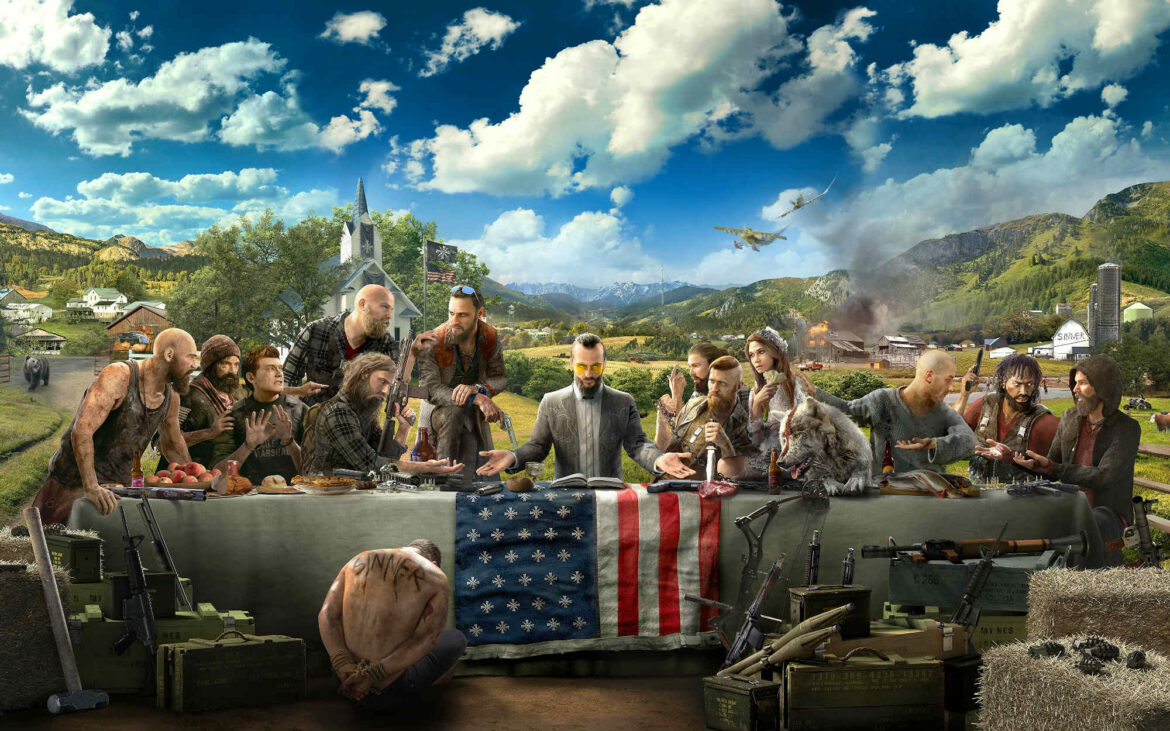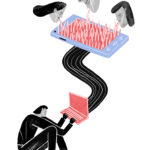Many in the gaming industry have gone to great lengths to declare their products “apolitical”. A strangely reactive defense of a genre that has long sought to be accepted as an art form—few would deny that novels, movies, photography, all other art forms are inherently political. It’s not impossible to make art that is apolitical, of course; the result is most often bad art.
Doublethink
The great irony is, political statements are evident by the content of the games that most ardently push for an apolitical label. Look no further than Ubisoft’s The Division 2, a game about the socio-political fracture of the USA to the point of a second civil war (sound familiar?) that somehow “is not a game about politics,” according to creative director Terry Spier. Earlier in 2018, the same publisher had released Far Cry 5, another game about US society breaking down, this time in the state of Montana, and under the strain of religious fundamentalism. In the link above, PC Gamer had aptly described it as “ultimately toothless”; one imagines this a direct consequence of an unwillingness to examine any one political ideology for fear that it might alienate parts of its player base.
But then, Ubisoft’s development teams and the company’s management seem two very different beasts trapped in the same body. The company’s track in the politics of sexual harassment is even murkier, as became apparent over the summer of 2020, when some of the highest-positioned management staff were embroiled in a string of sexual misconduct reports; later, a survey at the company revealed that as much as 25% of employees at the French publisher had experienced some form of workplace misconduct. Industry critic Jim Sterling covered at length the extent of protection the company extended to these executives—for years prior to the breaking of the story.
Profit Trumps All
No one aware of it could forget Activision Blizzard’s kowtowing before the interests of the CCP (Chinese Communist Party) when the company severely censured and punished Blitzchung, a champion player of their digital card game, Hearthstone. When the latter showed support for the 2019 Hong Kong protests going on at the time, he was banned from taking part in any Hearthstone championships for a year, and his championship prize of $10,000 rescinded. Blizzard’s explanation? Blitzchung’s statement had violated a tournament rule, which prohibits the player from engaging in any activity that “brings [them] into public disrepute, offends a portion or group of the public, or otherwise damages Blizzard image [sic].” If they only knew the amount of damage that move would cost them in that most valuable of intangible resources, reputation. The reaction was so fervent, it caused a rare bipartisan rebuke from members of US Congress in addition of turning large swathes of the Blizzard community against the company.

Yet, one cannot help but consider the dotted line—like any Triple-A company in the gaming industry, Activision Blizzard is eager to tap into the enormous gaming market that China has to offer; a market strictly regulated by the CCP, whose propaganda offices are all too happy to deny access to any studio that gives offence to the party. Though the revenue stream Activision Blizzard currently receives from the entire Asia Pacific region is dwarfed by both the Americas and the EMEA(Europe/Middle Eastern Area), it’s no petty cash by any means.
Ubisoft’s reason for claiming that apolitical label for games whose content is blatantly political in nature is similar—committing to one side of any political debate risks offending half the player base at a time of great political polarization.
What developers seem to struggle with is the notion that pointing a finger at a piece of art and proclaiming it apolitical does not automatically minimise the political thought inherent in that piece of art.
The latest offenders
Two topics have commanded the news cycle more than all others during these early months of 2021: COVID-19 and the insurgency at Washington DC in January. Certain game developers have managed to show remarkable aloofness in dealing with both topics. SCS Software, the developer behind Euro Truck Simulator 2 released a press announcement, which originally read “We Do Not Take A Stand Neither For Or Against Vaccines”. Later chalked up to a mistake in translation (the corrected statement read “No matter if you stand for vaccines or against them, these truckers still have to work really hard and we wanted to give them their well-deserved 15 minutes of fame”), this message was met with consternation by many—why would a medium-sized European studio feel the need to make so blatant a non-statement of political conformity? The answer can only be guessed at.
On the other side of the coin rests Six Days in Fallujah, a video game that portrays the Second Battle of Fallujah. It is also not political, if you believe Peter Tamte, head of the game’s publisher, Victura. Despite the game aiming to be a faithful representation of the fiercest battle of the Iraqi War, Tamte claims:
For us as a team, it is really about helping players understand the complexity of urban combat. It’s about the experiences of that individual that is now there because of political decisions. And we do want to show how choices that are made by policymakers affect the choices that [a Marine] needs to make on the battlefield. Just as that [Marine] cannot second-guess the choices by the policymakers, we’re not trying to make a political commentary about whether or not the war itself was a good or a bad idea.
The complexity of urban combat, one might suppose, itself has a great deal of political weight behind it. “Helping players understand” it in 2021 brings particular connotations to the fore, especially after what the world witnessed happening in the United States’ Capitol on January 6. Tamte exhibits the same wilful ignorance towards the wider context of politics as other executives do, a context which rests well outside of what is enacted by “policymakers”.
Politics reach further than well-kempt parliamentary buildings and senate floors. In an age where more and more issues are politicized, to be apolitical might seem a tempting prospect, a siren call to those too tired of the polarized climate across the public sphere. But attempting to faithfully render blatantly political situations in the format of a video game, only to stand apart from the messages that come with these is nothing if not dishonest and cowardly—and worth condemning.
Related articles:
A game of chess at the Greek-Turkish border
Photo credits:
Wiki-background by Prachatai on Flickr (CC BY-NC-ND 2.0)
Hearthstone at Gamescom 2013 by Sergey Galyonkin on Flickr (CC BY-SA 2.0)










